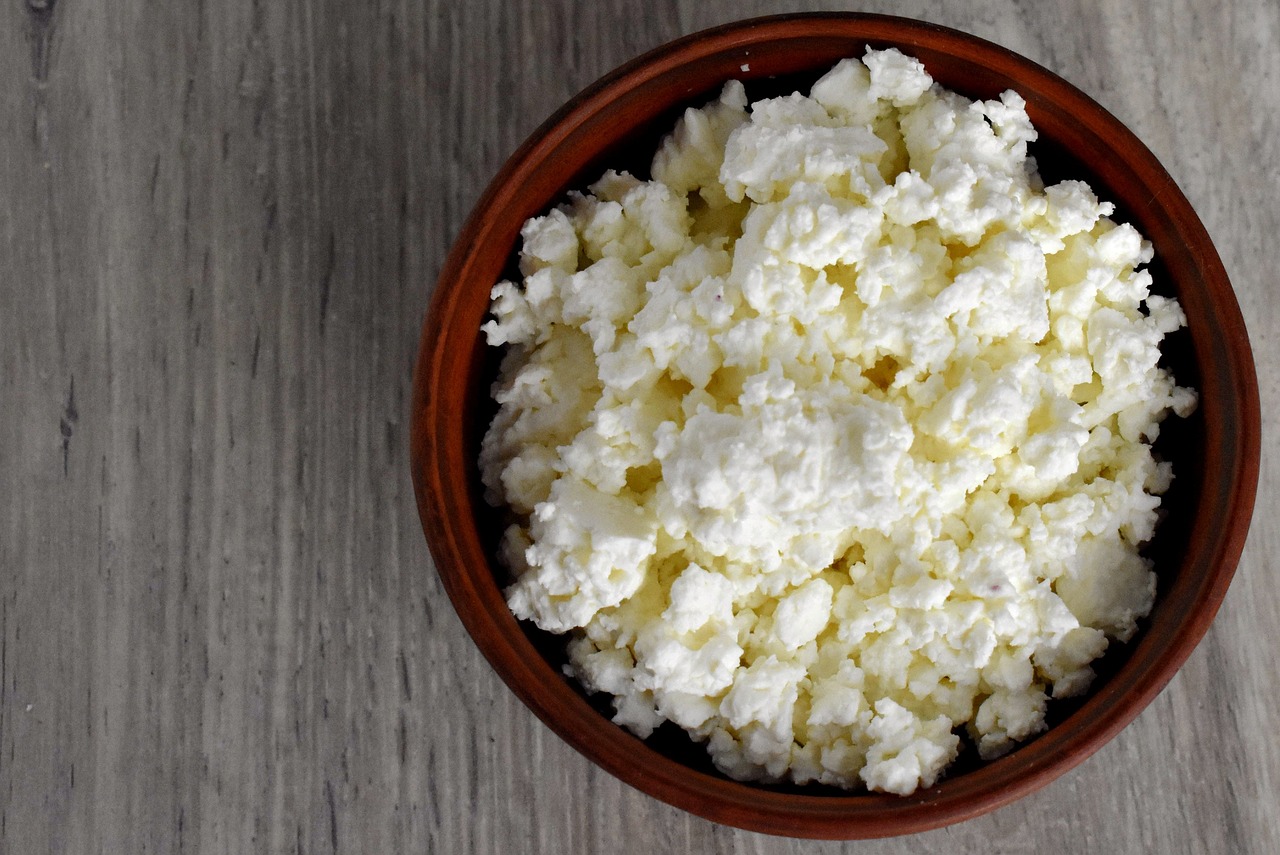
Cottage Cheese Diet: Pros, Cons, Is It Healthy, and More
In recent years, various diets have gained popularity, each claiming to be the key to achieving optimal health and weight loss. One such diet that has garnered attention is the Cottage Cheese Diet. This diet revolves around consuming cottage cheese as a primary source of protein and limiting the intake of carbohydrates and fats. In this comprehensive guide, we will explore the pros and cons of the Cottage Cheese Diet, its potential health benefits, and considerations to keep in mind before embarking on this dietary plan.
What is the Cottage Cheese Diet?
The Cottage Cheese Diet is a low-calorie, high-protein diet that emphasizes the consumption of cottage cheese as the primary protein source. Cottage cheese is a fresh cheese made from the curds of cow’s milk, typically low in fat and calories. Proponents of this diet claim that cottage cheese’s high protein content helps promote satiety, which can lead to reduced calorie intake and weight loss.
Pros of the Cottage Cheese Diet
- High protein content: Cottage cheese is an excellent source of protein. A half-cup serving of cottage cheese can provide around 14 grams of protein, making it a valuable option for individuals looking to increase their protein intake.
- Satiety: Protein-rich foods like cottage cheese are known to promote feelings of fullness and satiety. Including cottage cheese in your diet may help curb hunger cravings and reduce overall calorie intake, potentially aiding weight loss efforts.
- Nutrient profile: Cottage cheese is not only rich in protein but also contains essential nutrients such as calcium, phosphorus, selenium, and vitamins B12 and riboflavin. These nutrients are important for maintaining overall health and supporting various bodily functions.
- Versatility: Cottage cheese is a versatile food that can be easily incorporated into different dishes. It can be enjoyed on its own, mixed with fruits or vegetables, or used as a substitute for higher-calorie ingredients in recipes. This versatility allows for a variety of meal options while following the Cottage Cheese Diet.
Cons of the Cottage Cheese Diet
- Limited food choices: The Cottage Cheese Diet primarily revolves around cottage cheese, which means other food groups may be restricted. This can lead to a limited variety of nutrients and may not provide a well-rounded balance of essential vitamins, minerals, and macronutrients.
- Restrictive nature: The Cottage Cheese Diet can be highly restrictive, as it emphasizes the consumption of cottage cheese while limiting other foods. This strict approach may not be sustainable for everyone and can lead to feelings of deprivation or boredom with the diet plan.
- Potential nutrient deficiencies: Relying heavily on cottage cheese may result in inadequate intake of certain nutrients that are found in other food groups. For example, fruits, vegetables, whole grains, and healthy fats play crucial roles in a balanced diet and may not be adequately addressed by this diet plan.
Is the Cottage Cheese Diet Healthy?
- While the Cottage Cheese Diet may have some benefits, it is essential to consider its overall impact on health. The diet’s heavy reliance on cottage cheese as the primary protein source can be problematic if it neglects other essential nutrients. It is crucial to ensure that any diet plan, including the Cottage Cheese Diet, provides a wide range of nutrients to support optimal health.
- Additionally, individuals with certain dietary restrictions or lactose intolerance should exercise caution when considering the Cottage Cheese Diet, as cottage cheese is a dairy-based product. Lactose-intolerant individuals may experience digestive issues or discomfort when consuming cottage cheese.
- It is always advisable to consult with a healthcare professional or a registered dietitian before starting any new diet plan, including the Cottage Cheese Diet. They can provide personalized guidance based on individual nutritional needs, health conditions, and weight loss goals.
Alternative Approaches for Weight Loss
- While the Cottage Cheese Diet may work for some individuals, it is not the only approach to achieving weight loss and improved health. It is important to consider other well-balanced and sustainable dietary strategies that suit individual preferences and lifestyles.
- Some alternative approaches that focus on a balanced intake of whole foods, including lean proteins, whole grains, fruits, vegetables, and healthy fats, have proven effective for long-term weight management. These approaches prioritize a wide range of nutrients while allowing for flexibility and variety in food choices.
- Furthermore, incorporating regular physical activity and adopting a healthy lifestyle that includes adequate sleep, stress management, and hydration are essential factors for overall well-being and weight management.
Conclusion
The Cottage Cheese Diet is a low-calorie, high-protein diet that centers around the consumption of cottage cheese as the primary protein source. While it offers benefits such as high protein content, satiety, and nutrient richness, it also has limitations and potential drawbacks. The restrictive nature of the diet, limited food choices, and potential nutrient deficiencies should be taken into account.
As with any diet plan, it is important to consider individual nutritional needs, health conditions, and weight loss goals before embarking on the Cottage Cheese Diet. Seeking guidance from healthcare professionals or registered dietitians can provide personalized advice and help design a well-balanced approach to weight management and overall health. Remember, sustainable and balanced dietary strategies, combined with a healthy lifestyle, are key to long-term success.
Crystal is a qualified doctor and a sex and relationships adviser at Dimepiece LA. In her spare time, she enjoys nature and is a budding tennis enthusiast. Crystal is involved with several governmental and educational initiatives aimed at increasing awareness about sexual health and making free advice more accessible to everyone.
[email protected]
- Crafting the Perfect Vape: My Fun-Filled Journey with Vessel’s Craftsman Series! - July 26, 2024
- A Fun and Relaxing Sip: My Personal Review of Melo THC Beverages - May 16, 2024
- Comprehensive Review The Top CBD Products By FabCBD - April 20, 2024


